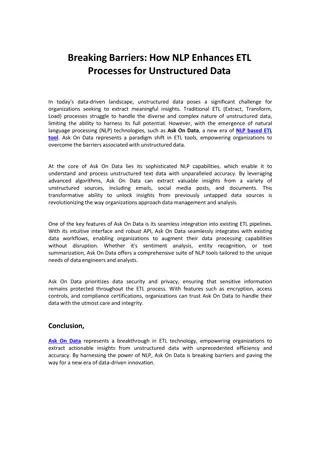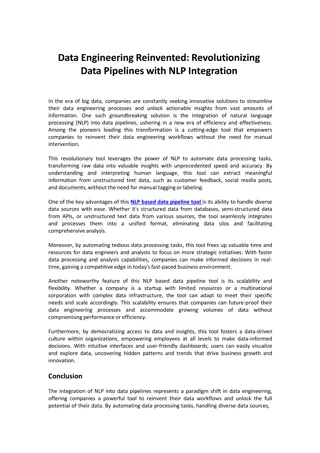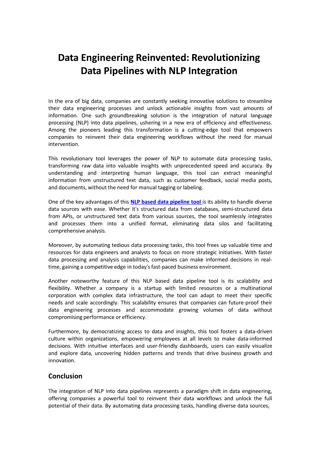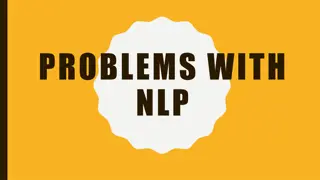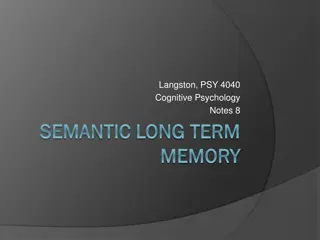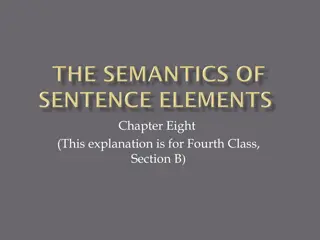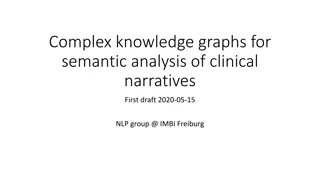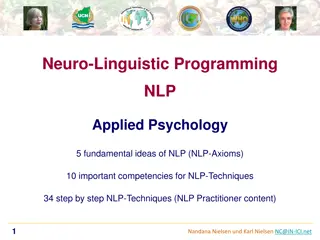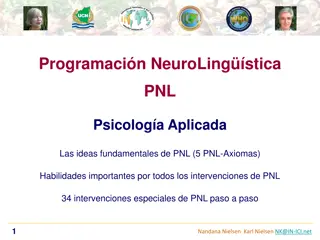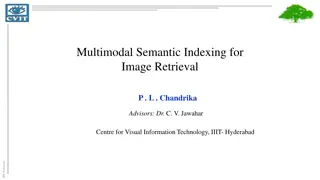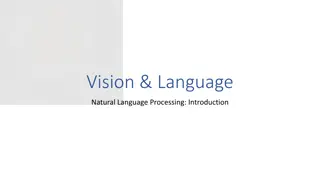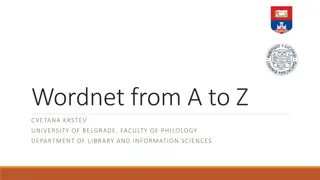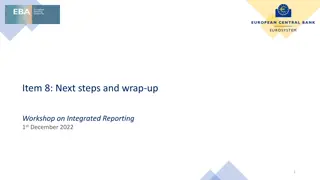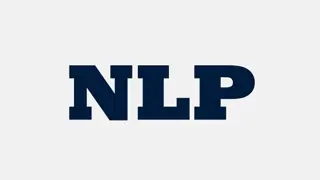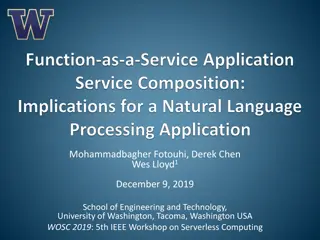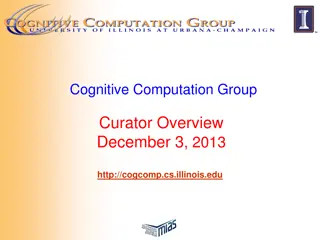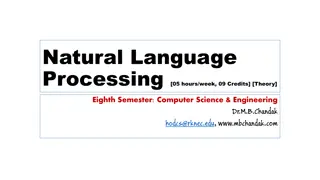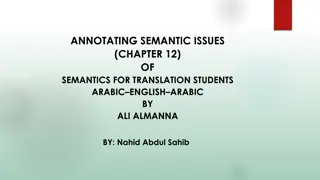Understanding Wordnet: A Semantic Network for NLP Integration
Wordnet is a project initiated by George Miller and Christiane Fellbaum at Princeton University, consisting of a database of words and their semantic relations. The structure is tree-like, with hypernymy as the main relation. The database includes various senses and examples for words like "bar," showcasing its versatility in capturing different meanings.
Download Presentation

Please find below an Image/Link to download the presentation.
The content on the website is provided AS IS for your information and personal use only. It may not be sold, licensed, or shared on other websites without obtaining consent from the author. Download presentation by click this link. If you encounter any issues during the download, it is possible that the publisher has removed the file from their server.
E N D
Presentation Transcript
Text Similarity Wordnet
Wordnet Wordnet is a project run by George Miller (1920-2012) and Christiane Fellbaum at Princeton University. It includes a database of words (mainly nouns and verbs but also adjectives and adverbs) and semantic relations between them. The main relation is hypernymy, so the overall structure of the database is more tree-like (see next slide). References: George A. Miller (1995). WordNet: A Lexical Database for English. Communications of the ACM Vol. 38, No. 11: 39-41. Christiane Fellbaum (1998, ed.) WordNet: An Electronic Lexical Database. Cambridge, MA: MIT Press.
Tree-like structure of Wordnet ungulate even-toed ungulate odd-toed ungulate ruminant equine okapi mule deer giraffe horse zebra pony elk wapiti caribou
Wordnet Example (1/6) The noun bar has 11 senses 1. barroom, bar, saloon, ginmill, taproom -- (a room where alcoholic drinks are served over a counter) 2. bar -- (a counter where you can purchase food or drink) 3. bar -- (a rigid piece of metal) 4. measure, bar -- (notation for a repeating pattern of musical beats; written followed by a vertical bar) 5. bar -- (usually metal placed in windows to prevent escape) 6. prevention, bar -- (the act of preventing) 7. bar -- (a unit of pressure equal to a million dynes per square centimeter) 8. bar -- (a submerged (or partly submerged) ridge in a river or along a shore) 9. legal profession, bar, legal community -- (the body of individuals qualified to practice law) 10. cake, bar -- (a block of soap or wax) 11. bar -- ((law) a railing that encloses the part of the courtroom where the the judges and lawyers sit and the case is tried) The verb bar has 4 senses 1. bar, debar, exclude -- (prevent from entering; keep out; "He was barred from membership in the club") 2. barricade, block, blockade, block off, block up, bar -- (render unsuitable for passage; "block the way"; "barricade the streets") 3. banish, relegate, bar -- (expel, as if by official decree; "he was banished from his own country") 4. bar -- (secure with, or as if with, bars; "He barred the door")
Wordnet Example (2/6) Sense 1 barroom, bar, saloon, ginmill, taproom => room => area => structure, construction => artifact, artefact => object, physical object => entity, something Sense 2 bar => counter => table => furniture, piece of furniture, article of furniture => furnishings => instrumentality, instrumentation => artifact, artefact => object, physical object => entity, something
Wordnet Example (3/6) Sense 3 bar => implement => instrumentality, instrumentation => artifact, artefact => object, physical object => entity, something Sense 4 measure, bar => musical notation => notation, notational system => writing, symbolic representation => written communication, written language => communication => social relation => relation => abstraction
Wordnet Example (4/6) Sense 5 bar => obstruction, impediment, impedimenta => structure, construction => artifact, artefact => object, physical object => entity, something Sense 6 prevention, bar => hindrance, interference, interfering => act, human action, human activity Sense 7 bar => pressure unit => unit of measurement, unit => definite quantity => measure, quantity, amount, quantum => abstraction
Wordnet Example (5/6) Sense 8 bar => ridge => natural elevation, elevation => geological formation, geology, formation => natural object => object, physical object => entity, something => barrier => mechanism => natural object => object, physical object => entity, something
Wordnet Example (6/6) Sense 9 legal profession, bar, legal community => profession, community => occupation, vocation, occupational group => body => gathering, assemblage => social group => group, grouping Sense 10 cake, bar => block => artifact, artefact => object, physical object => entity, something
Familiarity and Polysemy board used as a noun is familiar (polysemy count = 9) bird used as a noun is common (polysemy count = 5) cat used as a noun is common (polysemy count = 7) house used as a noun is familiar (polysemy count = 11) information used as a noun is common (polysemy count = 5) retrieval used as a noun is uncommon (polysemy count = 3) serendipity used as a noun is very rare (polysemy count = 1)
Top-Level Categories [Example from J&M, based on Schneider and Smith 2013]
Text Similarity Other Lexical Networks
MeSH Medical Subject Headings http://www.nlm.nih.gov/mesh/MBrowser.html
External Links EuroWordNet http://www.illc.uva.nl/EuroWordNet/ Open Thesaurus http://www.openthesaurus.de/ Freebase http://www.freebase.com DBPedia http://www.dbpedia.org BabelNet http://babelnet.org Various thesauri https://sites.google.com/site/openrogets/



